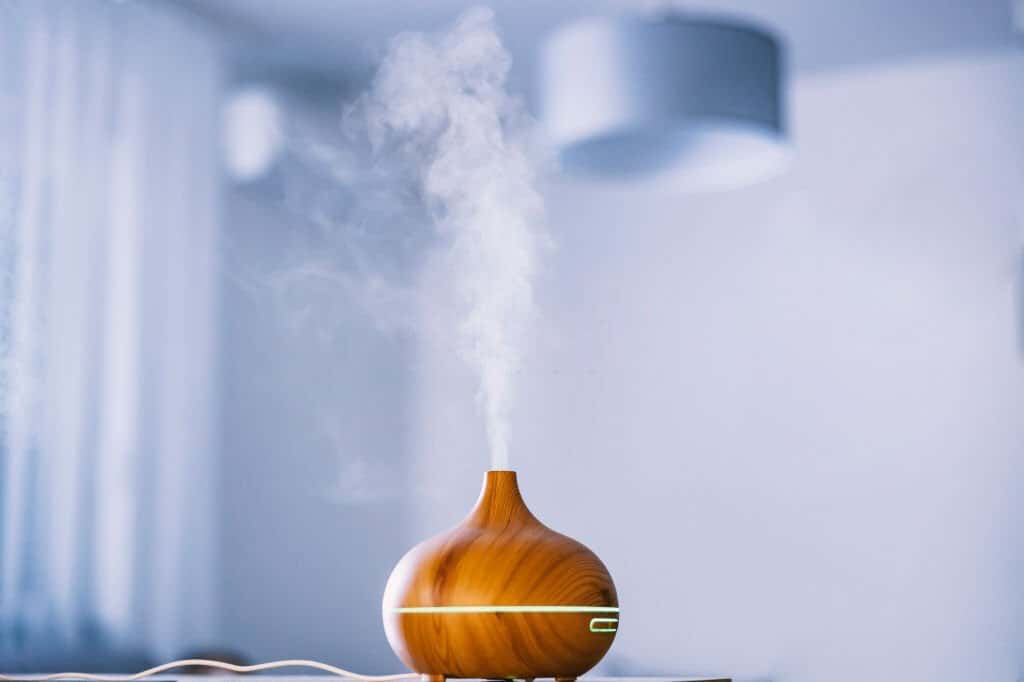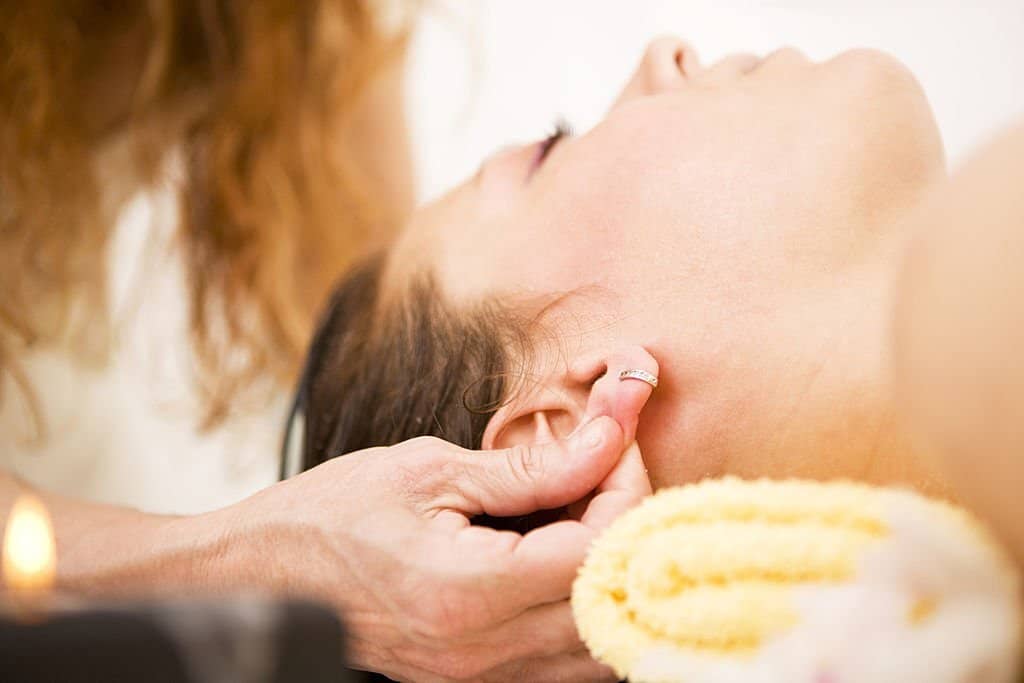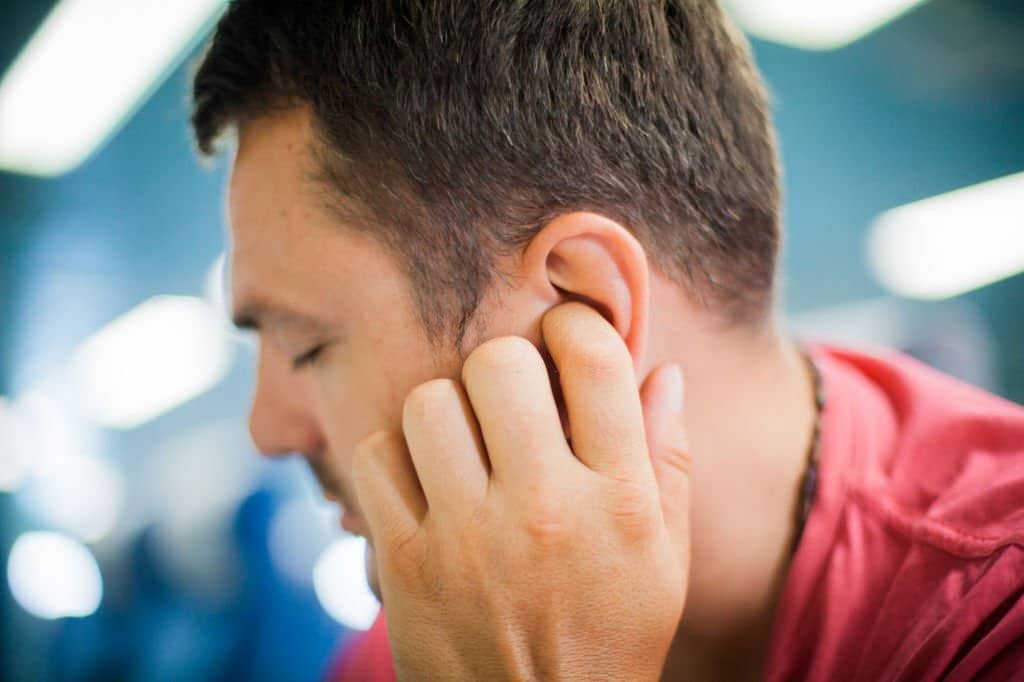Sharp pain in ear is medically named ‘otalgia,’ which is a condition where a person experiences sudden, sharp, and severe pain in their ear. It can be a really frustrating experience. It can make it difficult to concentrate, and it can be tough to sleep when your ear hurts.
If you are experiencing sharp pain in your ear, it is important to figure out the cause immediately. Left untreated, some types of ear pain can lead to long-term damage.
In some cases, the cause of sharp ear pain is easily treatable. But other times, the cause can be more serious.
Here we will highlight ten common causes of sharp ear pain, and before you get to the doctor, we will also recommend some effective treatments to help alleviate the discomfort.
Sharp pain in the ear causes:
Sudden changes in air pressure
The first and most common cause of sharp ear pain is a sudden change in air pressure. This can be caused by a number of things, such as:
- Flying in an airplane
- Riding in a car or bus that goes over a bumpy road
- Scuba diving
- Playing a wind instrument
When the air pressure changes suddenly, it can cause sharp pain in the ear. This is because the eardrum is very sensitive to changes in pressure.
The best way to treat sharp pain caused by a sudden change in air pressure is to equalize the pressure in your ears. This can be done by:
- Yawning
- Chewing gum
- Swallowing
Doing the Valsalva maneuver (pinching your nose shut and blowing out slowly)
If you are flying in an airplane, it is important to drink plenty of fluids during the flight to help keep your ears from getting too dry.
If sharp ear pain caused by a sudden change in air pressure does not go away after a few minutes, it is important to see a doctor.
Ear infection
The second common cause of sharp ear pain is an ear infection. There are two types of ear infections:
Outer ear infection (otitis external): This type of ear infection affects the outermost part of the ear and is often caused by bacteria or fungi.
Middle ear infection (otitis media): This is an infection of the middle ear. It is often caused by a buildup of fluid in the middle ear. Otitis media can cause severe pain in the ear, as well as fever, hearing loss, and drainage from the ear.
Other causes of sharp ear pain:
- Bacteria
- Viruses
- Allergies
- Excess wax buildup
- Fluid in the middle ear
- A foreign object in the ear (such as a piece of cotton from a cotton swab)
Ear infections usually happen when the ear is exposed to too much moisture. This can happen if you:
- Swim a lot
- Have allergies that cause excessive mucus production
- Live in a humid climate.
- Work in a job that exposes you to water or chemicals
- Use hearing aids that don’t fit properly.
Symptoms of an ear infection include:
- Sharp ache in the ear
- Fever
- Trouble hearing
- A feeling of fullness in the ear
- Drainage from the ear
- Swelling around the ear
- Tenderness in the ear
If you think you may have an ear infection, it is important to see a doctor as soon as possible. They will likely prescribe antibiotics or antiviral medication. Ear infections can lead to serious complications if they are not treated promptly.
But there are a few home remedies that can help relieve the pain of an ear infection, such as:
- Over-the-counter pain relievers like ibuprofen or acetaminophen
- A warm compress is applied to the ear
- A home remedy like garlic oil or apple cider vinegar
Related article: Dry Skin in Ears: Causes, Symptoms, Treatment, FAQs
Wax buildup
Another common cause of sharp ear pain is wax buildup. Wax is a natural substance that protects the ear from dirt and debris. But sometimes, too much wax can accumulate in the ear and cause sharp pain.
When earwax accumulates in the ear canal, it can harden and block the flow of sound. If you have sharp pain in your ear that is accompanied by a feeling of fullness, it is likely due to wax buildup. This can also happen if you use cotton swabs too often or have oily skin.
- Wax buildup can also cause:
- Tinnitus (ringing in the ears)
- Itchy ears
- A feeling of fullness in the ear
You must see a doctor if you think you have much wax buildup. They will be able to remove the wax with suction or irrigation safely. Do not try to remove the wax yourself with cotton swabs or other objects, as this can push the wax further into the ear and cause more pain.
Allergies
Allergies can also cause sharp pain in the ear. When you have allergies, your body produces histamines to react to the allergen. This can cause swelling in the Eustachian tubes, leading to sharp ear pain. Allergies can be caused by many things, such as dust, pollen, or even certain foods.
How do you treat sharp ear pain caused by allergies?
If allergies cause sharp ear pain, a few things can be done to help ease the symptoms.
- Take an antihistamine such as loratadine (Claritin) or cetirizine (Zyrtec).
- Apply a warm compress to the ear
- Use a nasal spray to clear congestion, such as fluticasone propionate (Flonase), to help with congestion.
- Stay hydrated by drinking plenty of fluids
- Avoid irritants such as smoke, dust, and pollen
So, those are a few of the most common causes of sharp ear pain. If you are experiencing sharp ear pain, it is important to see a doctor to rule out any serious causes.
Some Effective Home Remedies to treat sharp pain in ear
There are a few home remedies that can help to ease sharp pain in the ear. These include:
Applying a warm compress to the affected ear
This can help to reduce pain and inflammation. Soak a clean cloth in warm water and apply it to the affected ear for around 15 minutes. Repeat this several times a day as needed.
You can also use a warm, damp washcloth if you don’t have a clean cloth.
Just be sure not to use anything too hot, as this could further irritate the skin.
Taking over-the-counter pain relievers
Acetaminophen or ibuprofen can help to reduce sharp aches in the ear. Be sure to follow the directions on the package and never take more than the recommended dosage.
If you’re unsure which medication is best for you, speak to your doctor or pharmacist.
Applying a topical numbing agent
This can help to provide temporary relief from sharp pain in the ear. Look for an OTC product that contains lidocaine or another type of numbing agent.
Apply a small amount of the cream or gel to the affected area and wait for it to take effect. Repeat as needed throughout the day.
Using a humidifier


If the sharp pain in your ear is due to congestion, using a humidifier can help to ease the discomfort. The added moisture will help to thin out mucus and make it easier to drain.
Be sure to clean your humidifier regularly to prevent mold and bacteria growth.
Avoiding ear irritants
Many things can irritate the ear and cause sharp pain. These include loud noises, smoking, and exposure to cold temperatures.
If you can identify the irritant, it’s best to avoid it as much as possible. If you can’t avoid it completely, take steps to protect your ears, such as wearing earplugs.
Gently massaging the affected area


Massaging the affected area can also relieve severe pain in the ear. Use your fingertips and massage in a circular motion. You can use oil or lotion to help reduce friction. Do this for a minute or two, then stop and repeat as needed.
Tips to prevent future ear pain
- Avoid exposure to loud noise.
- Limit the use of cotton swabs in the ear
- Stay hydrated by drinking plenty of fluids. This will help thin mucus and prevent congestion.
- If you have allergies, try to avoid triggers such as dust, pollen, and certain foods.
- Use a humidifier in dry climates.
- Wash your hands often to prevent the spread of germs. If you are sick, avoid touching your ears.
- Swimming only in freshwater pools and avoiding saltwater pools. This is especially important if you have had previous ear infections. Water can irritate the ear and cause sharp pain. If you must swim, wear earplugs to protect your ears from water. If you get water in your ears, dry them immediately with a towel.
If you are prone to sharp ear pain, see a doctor if you experience any changes in your hearing or if the pain is severe. Early treatment can help prevent serious complications.
When should you see a doctor?
Sharp pain in the ear is usually not a cause for concern and can be treated at home. However, there are a few cases where you should see a doctor.
If you experience a sharp ache in your ear that lasts longer than a few days, it is best to see a doctor. In some cases, severe pain in the ear can be a sign of a more serious condition. You should see a doctor immediately if you also have symptoms such as fever, discharge from the ear, or hearing loss.
Sharp pain in the ear can also be accompanied by other symptoms, such as dizziness or nausea. If you experience any of these symptoms, it is best to see a doctor to rule out any underlying causes. Treatment for sharp aches in the ear will vary depending on the underlying cause. This way, you can get peace of mind and rule out any potential underlying causes.
The Bottom Line
There are many potential causes of sharp pain in the ear, and it can be difficult to determine the exact cause without speaking to a doctor. However, some of the most common causes include infection, blockage, and damage to the ear canal. In most cases, a sharp ache in ear is not a serious condition and can be treated at home with over-the-counter medication. However, if the pain is severe or does not improve after a few days, it is mandatory to see a doctor to rule out any underlying medical conditions.

